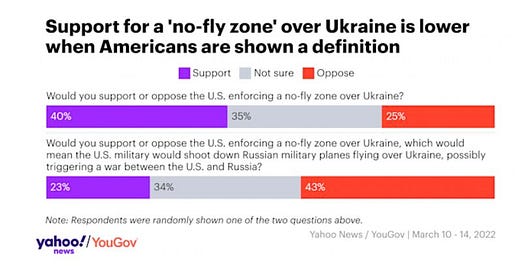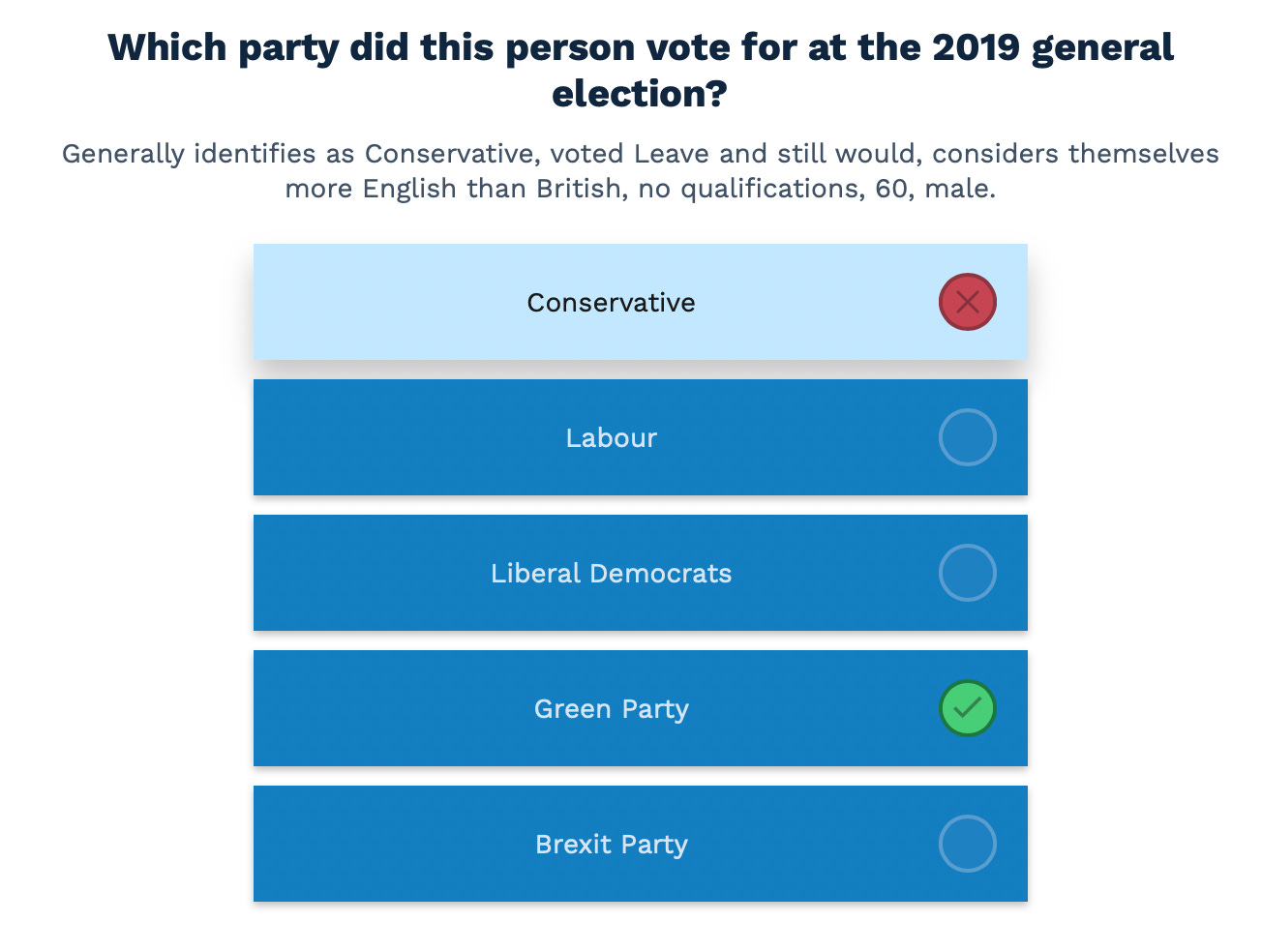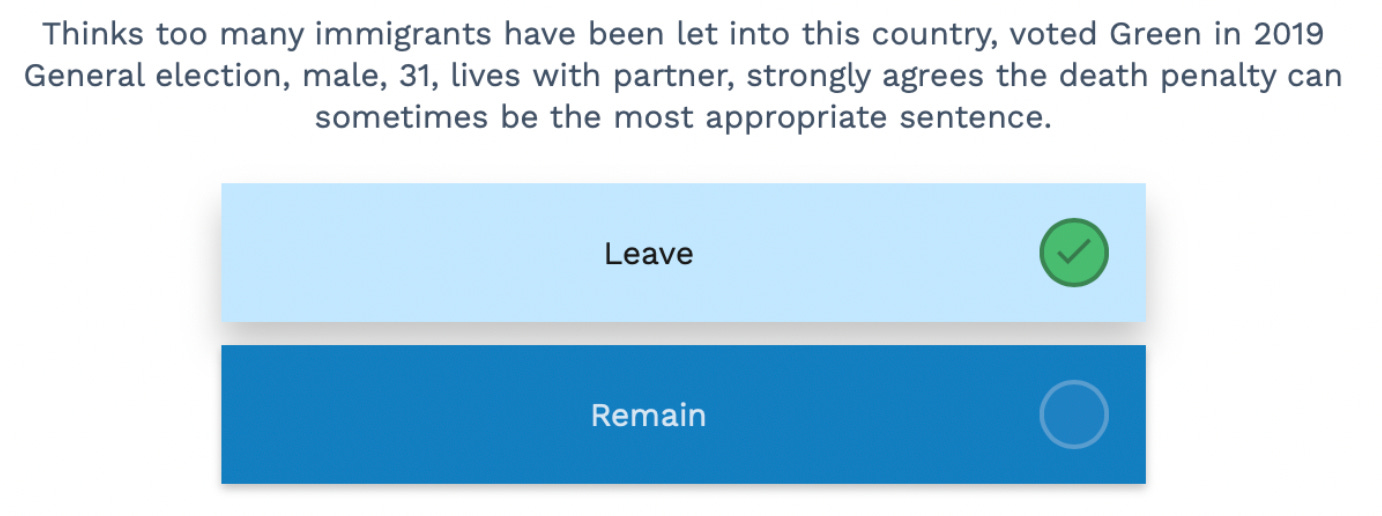The sort of people who read this blog probably already know that their political views are unusual. If you think the amount of immigration should be much higher, or that the US government should spend a lot more money on AI Risk, or you have some convoluted opinion on crypto regulation, you have extremely weird views. But maybe people underestimate how weird they are for having coherent political views. In fact, I’ve sometimes talked about high-entropy thinking (meaning someone who has varied opinions that are difficult to predict) as a virtue - it means you aren’t just responding to elite cues or toeing the party line. But some people are extremely high-entropy thinkers to the extent that it stops being a virtue and loops back around to being a sin again.
A father of one of my friends has views that seem fairly contradictory, or if not contradictory, at the very least they’re not views that seem like a natural fit for one another: he’s anti-NATO and supports the (very left-wing) Stop the War Coalition, but votes Conservative and likes Boris Johnson. He thinks the UK should take in many more Ukrainian refugees, but has been complaining about refugees from other countries coming in from Calais for months. He has praised the Labour leader Keir Starmer for his tough approach to non-Ukrainian refugees (note: as far as I can tell, Keir starmer doesn’t have a particularly tough approach to non-Ukrainian refugees). Again, it’s definitely possible to construct a narrative where all these views fit together fairly nicely, but it’s certainly an unusual combination of opinions.
Maybe some of this stuff is just people not really knowing much about anything. The poll above from YouGov shows that if you ask people if they support a no-fly zone over Ukraine, 40% of people say they do and 25% of people say they don’t. If you explain what a no-fly zone actually is, 23% of people say they do and 43% of people say they don’t. But I think it isn’t just people not knowing about stuff, lots of people just have weirdly eclectic views. I’ve linked to this little game before, but want to do so again because it’s so interesting. You’re given some information about a voter in the UK (like their view on immigration and their gender and their view on the death penalty), and you have to guess which party they support or how they voted in the EU Referendum. It’s so fun, that we’re going to play it together - the first ever interactive All That is Solid experience! Sorry if you don’t know anything about British politics, but maybe you’ll learn something.
Here’s the first example of someone I got:
Strongly believes politicians ignore the issues they care about and that the government should get rid of private education, voted remain, rents from a private landlord, Buddhist, 48, female.
Okay - I think when I initially read this I thought it was fairly likely they were a Green voter because she’s Buddhist, but the smart guess here is definitely Labour just because there are way more Labour voters than there are Green voters. I’m reasonably confident on this one - being female is correlated with voting Labour, having voted Remain in the 2016 EU Referendum is correlated with voting Labour, renting rather than owning a house is strongly correlated with voting Labour, wanting to ban private education is (almost definitely, although I’ve never actually looked at the figures) correlated with voting Labour. Her age is probably slightly correlated with voting Conservative. But this is probably a Labour voter, although she could surprise us and be a Lib Dem or a Green voter (Lib Dem is still probably more likely than Green because there are many more LDs than Greens). Her being a Conservative voter seems unlikely but isn’t impossible - there’s actually a chance here that Tory is more likely than Green just because there are so many more Tories than Green voters, but I still feel the chance of her being a Green voter is higher, because my stereotyping here is strong. The chance of her being a Brexit Party voter is probably like 0.2% or something - a (seemingly) left-wing Remain voter just isn’t going to be a Brexit Party voter, plus barely anyone voted Brexit Party anyway so the base-rate is already like 1% or something.
Hmm. This is genuinely the first example I got, and demonstrates the point the article is trying to make nicely, but I’m still sort of annoyed at getting it wrong. I once showed this game to a friend of mine, who reported that her father (not the same guy as before) became livid at how weird people’s views were. How about round 2?
Generally identifies as Conservative, voted Leave and still would, considers themselves more English than British, no qualifications, 60, male.
Again, I’m writing my guess here before I check the answer. This seems like it should be a Conservative voter. I’ll be sort of annoyed if this isn’t a Conservative voter, because it will look like I rigged this to make the voters seem weirder than they actually are. I encourage you to go and play the game yourself, and you should note that the respondents here are selected randomly, so there isn’t any funny business going on where they just choose particularly weird voters. If you’re a real nerd, you can delve into the BES and pick a voter at random. But anyway - this should be a Conservative voter. The polling was done between December 2019 and July 2020, when the Tories were polling well, so the chance it’s a Brexit Party voter are fairly small. As far as I know, every single one of the characteristics given is correlated with voting Conservative rather than Labour - and I’m pretty confident on that (>70%). He’s also much more likely to be a Labour voter than a Brexit Party voter, given the base-rate. I’m going to go with Conservative (60%), Labour (30%), Brexit Party (7%), Lib Dem or Green (3%).
Okay, I absolutely swear that I’m not rigging this. I’m sort of becoming more suspicious that the website itself isn’t (as it claims) choosing random voters, but who knows? Let’s do the final round. This one asks whether this person voted Remain or Leave in the 2016 EU Referendum:
Thinks too many immigrants have been let into this country, voted Green in 2019 General election, male, 31, lives with partner, strongly agrees the death penalty can sometimes be the most appropriate sentence.
Okay, I’m not going to fall for the ‘too many immigrants’ trick here. Loads of British voters think that too many immigrants have been let into the country, I’ve written about this before. The chance of a random person voting Leave is 52%, so let’s adjust up only to 60% from the first sentence. The fact that he’s a Green voter should make us adjust down a lot, maybe to 40% of having voted Leave. I’m not sure about the exact age at which voting Leave becomes more common than voting Remain, but I would guess that it’s around 45, so him being 31 would cause me to adjust down, but the fact he’s male might balance things out, so I’m going to stick with 40% for now. The death penalty thing should push us back up a lot, but I’m pretty torn. I’m going to go with a 57% chance of him being a Leave voter, 5 percentage points above the base-rate.
Finally, we got one! Or I got one, rather. Maybe you did too. If you did better than me, I’m going to assume you either cheated or are stupid or assumed (wrongly!) that I was going to pick weird examples on purpose. Maybe I’m just bitter.
Anyway - I was overconfident, even knowing that there is good research showing that people are overconfident when guessing how other people voted. I’ll defend myself by saying that I do think these examples were particularly weird voters. My Brier score would have been horrendous here, although for the first question I didn’t remember to put a % chance. The paper that originally led me to this website, Titelman and Lauderdale (2021), also has some interesting stuff in it. People are extremely overconfident in their guesses about how someone voted in either a General Election or the EU Referendum (guilty), but the guesses at least are correlated with how the respondent actually voted, so our perceptions aren’t totally wrong. People in London are the worst at guessing how other people voted, and that is also consistent with my performance here. The average Brier score for guesses on the EU Referendum is 0.414, so a little bit better than guessing randomly (which would give a Brier score of 0.5, where a lower score is better), but not much better.
Anyway, this article is getting pretty long and probably not particularly interesting to people who aren’t engaged with British politics, so I’m going to wrap it up. But I do still find this kind of baffling. I know I gave the example of my friend’s dad having weird beliefs in the second paragraph, but the reason I used him as an example is because he’s an interesting outlier! I actually find these voters weirder than my friend’s dad, the person with the most incoherent political views I personally know. Most people I know are young, university-educated people in London who voted Remain and vote Labour. How are these voters so damn unpredictable?! Let me know what incoherent views you’ve come across in the comments.








You focus a lot here on asking whether the site is choosing weird people to ask you about. But I wonder about how the site is describing these people. That is, there is no uniform way to describe people here: in question one, the first descriptor is about faith in politicians, in question two it is general party affiliation, in three immigration. Are you sure the site isn't made so as to describe these people in ways that will lead you astray so as to lead you to a conclusion based on that?
I went to the site and got the exact same first question. Which makes me think there's only a small set of questions - and then that makes me think they're cherry-picked to make a particular point.
Or maybe not. I don't have any trouble believing that people don't line up like this.